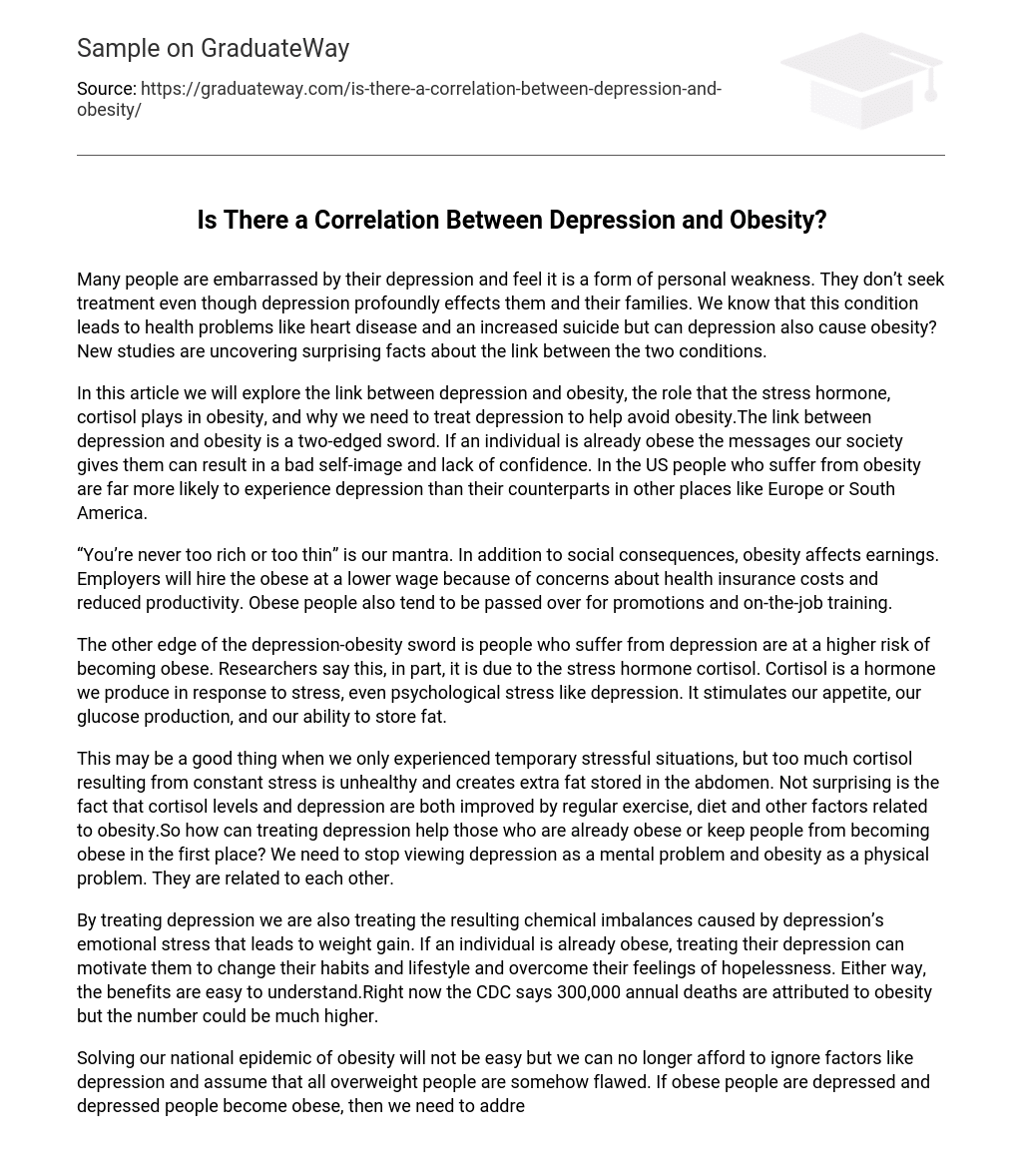Many people are embarrassed by their depression and feel it is a form of personal weakness. They don’t seek treatment even though depression profoundly effects them and their families. We know that this condition leads to health problems like heart disease and an increased suicide but can depression also cause obesity? New studies are uncovering surprising facts about the link between the two conditions.
In this article we will explore the link between depression and obesity, the role that the stress hormone, cortisol plays in obesity, and why we need to treat depression to help avoid obesity.The link between depression and obesity is a two-edged sword. If an individual is already obese the messages our society gives them can result in a bad self-image and lack of confidence. In the US people who suffer from obesity are far more likely to experience depression than their counterparts in other places like Europe or South America.
“You’re never too rich or too thin” is our mantra. In addition to social consequences, obesity affects earnings. Employers will hire the obese at a lower wage because of concerns about health insurance costs and reduced productivity. Obese people also tend to be passed over for promotions and on-the-job training.
The other edge of the depression-obesity sword is people who suffer from depression are at a higher risk of becoming obese. Researchers say this, in part, it is due to the stress hormone cortisol. Cortisol is a hormone we produce in response to stress, even psychological stress like depression. It stimulates our appetite, our glucose production, and our ability to store fat.
This may be a good thing when we only experienced temporary stressful situations, but too much cortisol resulting from constant stress is unhealthy and creates extra fat stored in the abdomen. Not surprising is the fact that cortisol levels and depression are both improved by regular exercise, diet and other factors related to obesity.So how can treating depression help those who are already obese or keep people from becoming obese in the first place? We need to stop viewing depression as a mental problem and obesity as a physical problem. They are related to each other.
By treating depression we are also treating the resulting chemical imbalances caused by depression’s emotional stress that leads to weight gain. If an individual is already obese, treating their depression can motivate them to change their habits and lifestyle and overcome their feelings of hopelessness. Either way, the benefits are easy to understand.Right now the CDC says 300,000 annual deaths are attributed to obesity but the number could be much higher.
Solving our national epidemic of obesity will not be easy but we can no longer afford to ignore factors like depression and assume that all overweight people are somehow flawed. If obese people are depressed and depressed people become obese, then we need to address the link between the two and find solutions that address both problems.





